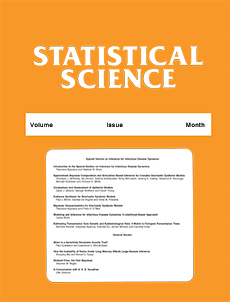Abstract
The growing expanse of e-commerce and the widespread availability of online databases raise many fears regarding loss of privacy and many statistical challenges. Even with encryption and other nominal forms of protection for individual databases, we still need to protect against the violation of privacy through linkages across multiple databases. These issues parallel those that have arisen and received some attention in the context of homeland security. Following the events of September 11, 2001, there has been heightened attention in the United States and elsewhere to the use of multiple government and private databases for the identification of possible perpetrators of future attacks, as well as an unprecedented expansion of federal government data mining activities, many involving databases containing personal information. We present an overview of some proposals that have surfaced for the search of multiple databases which supposedly do not compromise possible pledges of confidentiality to the individuals whose data are included. We also explore their link to the related literature on privacy-preserving data mining. In particular, we focus on the matching problem across databases and the concept of “selective revelation” and their confidentiality implications.
Citation
Stephen E. Fienberg. "Privacy and Confidentiality in an e-Commerce World: Data Mining, Data Warehousing, Matching and Disclosure Limitation." Statist. Sci. 21 (2) 143 - 154, May 2006. https://doi.org/10.1214/088342306000000240
Information





